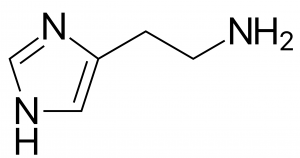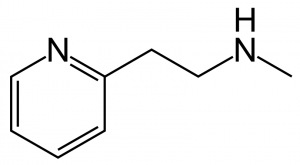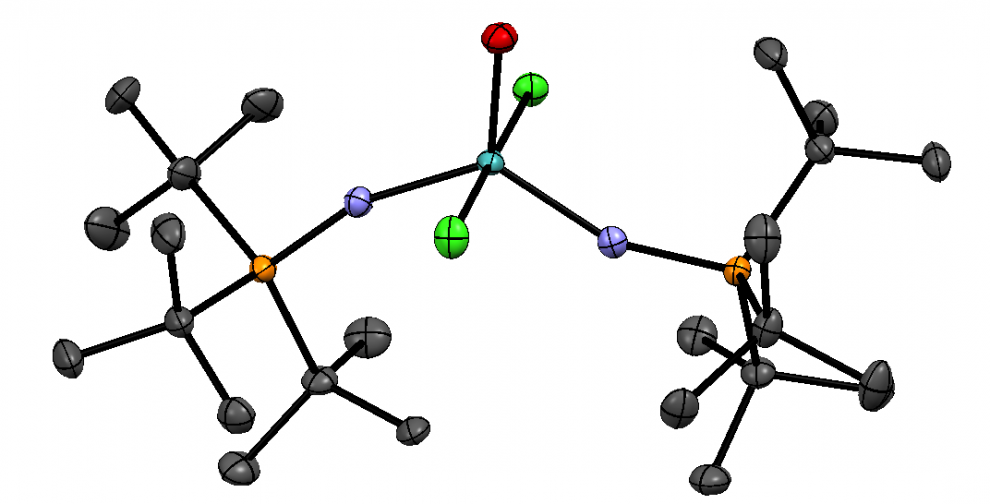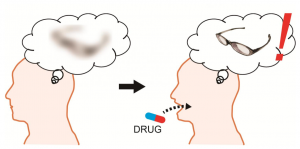Do you easily forget things? Would you like to improve your memory? A recent study led by Professor Yuji Ikegaya and Dr. Hiroshi Nomura of the University of Tokyo suggests that your long-term memory might be improved with pro-histamine treatment.

The structural formula of histamine. Retrieved from Wikipedia Common.
Pro-histamine drugs increase the level of histamine, which in the central nervous system is associated with learning and memory. Scientists believe that elucidating the role of histamine in memory may help alleviate the symptoms of dementia.
Watch the video that describes the causes, symptoms and treatment options of dementia from Youtube:
[youtube]https://www.youtube.com/watch?v=nLdLfmFzLSo[/youtube]
Professor Ikegaya’s team conducted a human clinical trial to investigate whether betahistine mesilate, a pro-histamine drug previously used to treat dizziness, could promote recall in memory. In this trial, a total of 38 men and women aged about 25 years old completed the memory test over three different days. The results of the trial showed that the participants with poor memories could get a higher long-term memory test score after taking betahistine mesilate. Ikegaya said: “Increased histamine helped research participants remember an image they knew once, but couldn’t remember during a long-term memory word-association test.” However, taking this drug reduces the test score of the participants with good memories. It is also worth mentioning that current studies did not show that pro-histamine drugs can help people memorize new things.

The structural formula of betahistine. Retrieved from Wikipedia Common.
Professor Ikegaya proposes that memory is a combination of “gradient storage systems” and “digital extraction systems”. Information may be stored in the brain in the form of a gradient, but the nerves are only activated when a certain threshold is exceeded. Based on this theory, they suspect that betahistine mesilate raises the histamine gradient to the threshold level, and helps us recall things by activating the memory-related nerve cells. Ikegaya said: “You still have the memory, but you can’t access it unless it is above a particular threshold.” However, if neural signals have already exceeded the threshold, extra histamine may add too much “noise” and hinder memory extraction.
A similar object recognition task was conducted on mice. Scientists found that mice memory time could be highly extended after receiving betahistine mesilate. In addition, experiments detecting the activity of individual nerve cells in the brain of mice show that this drug increases the secretion of histamine, especially in a region of the brain that is known to be associated with visual perception and memory – the perirhinal cortex. Meanwhile, histamine can re-activate the same nerve cells that were active during memory formation.
I think pro-histamine drugs can be a potential treatment for dementia, and can promote the retrieval of long-term memory if a similar effect is found in older people. Besides betahistine mesilate, other pro-histamine drugs can also be studied.
Wenxin Zhao

